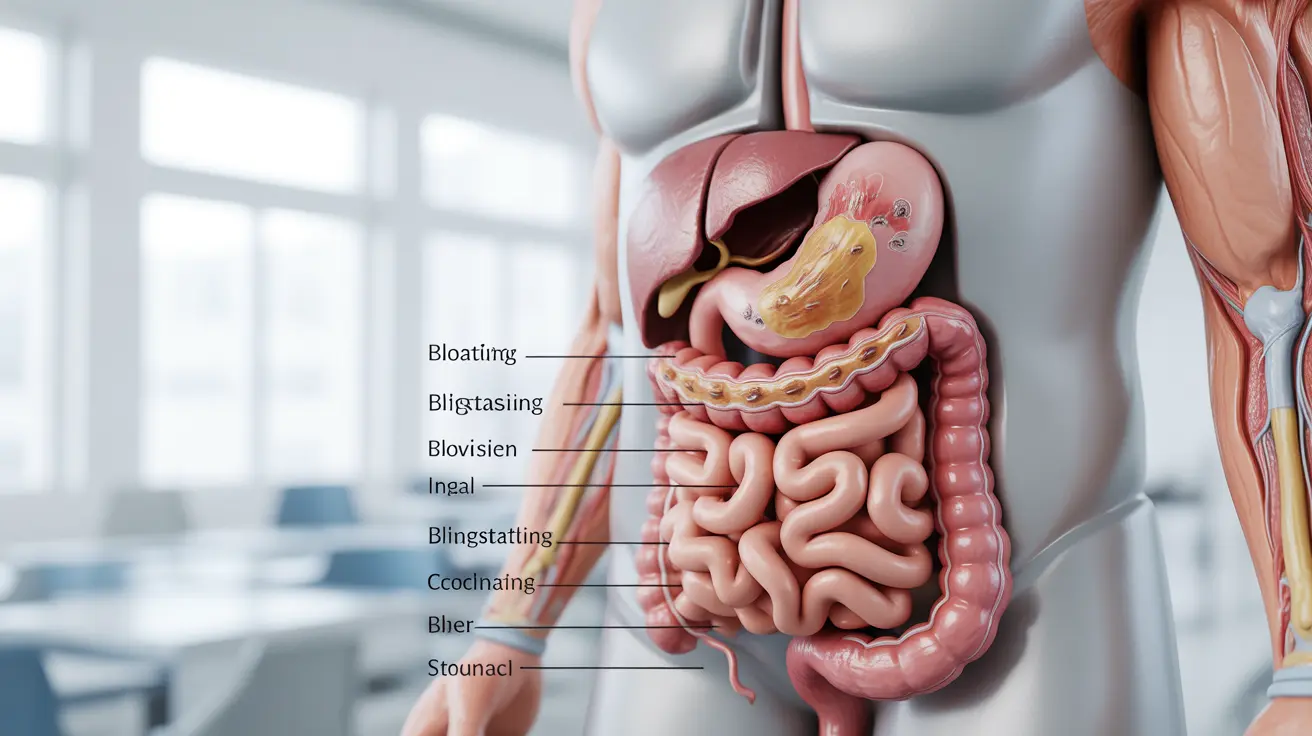As people age, digestive issues become increasingly common, with stomach bloating being a frequent complaint among seniors. This uncomfortable condition can significantly impact quality of life and may signal underlying health concerns that require attention. Understanding the various causes of bloating in elderly individuals is crucial for proper management and treatment.
While occasional bloating might be normal, persistent or severe bloating in older adults should not be ignored, as it could indicate more serious health conditions. Let's explore the common causes, contributing factors, and when to seek medical attention for this uncomfortable symptom.
Common Causes of Stomach Bloating in the Elderly
Several factors can contribute to bloating in older adults, ranging from lifestyle choices to medical conditions:
Digestive System Changes
As we age, our digestive system naturally slows down, producing fewer enzymes and experiencing reduced muscle tone. These changes can lead to slower digestion and increased gas production, resulting in bloating.
Medical Conditions
Several health conditions common in the elderly can cause bloating:
- Irritable Bowel Syndrome (IBS)
- Diverticular disease
- Gastroparesis
- Constipation
- Small intestinal bacterial overgrowth (SIBO)
- Celiac disease
Medication and Diet-Related Causes
Medications
Many medications commonly prescribed to seniors can contribute to bloating:
- Pain medications and NSAIDs
- Blood pressure medications
- Iron supplements
- Calcium supplements
- Certain diabetes medications
Dietary Factors
Several dietary habits can increase the likelihood of bloating:
- Consuming too much fiber too quickly
- Eating gas-producing foods
- Large meal portions
- Inadequate water intake
- Food intolerances that develop with age
Warning Signs and When to Seek Medical Help
While some bloating is normal, certain symptoms warrant immediate medical attention:
- Severe abdominal pain
- Persistent bloating lasting several days
- Unexplained weight loss
- Blood in stool
- Changes in bowel habits
- Vomiting
- Fever
Managing and Preventing Bloating
Several lifestyle modifications can help reduce bloating in elderly individuals:
Dietary Changes
Making thoughtful adjustments to eating habits can significantly improve symptoms:
- Eating smaller, more frequent meals
- Avoiding known trigger foods
- Staying well-hydrated
- Limiting carbonated beverages
- Reducing sodium intake
Physical Activity
Regular movement helps stimulate digestion and reduce bloating:
- Gentle walking after meals
- Light exercise daily
- Simple stretching exercises
- Maintaining good posture
Frequently Asked Questions
What are the most common causes of a bloated stomach in elderly people?
The most common causes include slower digestion, medications, dietary factors, and medical conditions such as IBS, constipation, and bacterial overgrowth. Age-related changes in the digestive system also play a significant role.
How can diet and medications contribute to bloating in older adults?
Certain medications can slow digestion or cause fluid retention, while dietary factors like consuming gas-producing foods, eating large portions, or having food intolerances can lead to bloating. Some medications that commonly cause bloating include pain relievers, blood pressure medications, and supplements.
When should an elderly person see a doctor for persistent stomach bloating?
An elderly person should seek medical attention if bloating persists for several days, is accompanied by severe pain, unexplained weight loss, blood in stool, vomiting, fever, or significant changes in bowel habits.
What lifestyle changes can help reduce bloating and abdominal distension in seniors?
Helpful lifestyle changes include eating smaller meals, staying hydrated, avoiding trigger foods, maintaining regular physical activity, and practicing good posture. Regular gentle exercise and proper meal timing can also help improve digestion.
How do digestive disorders like IBS and diverticular disease cause bloating in the elderly?
IBS can cause irregular bowel movements and gas production, leading to bloating. Diverticular disease creates small pouches in the intestinal wall that can trap food and bacteria, causing inflammation and bloating. Both conditions can be exacerbated by age-related changes in digestive function.




